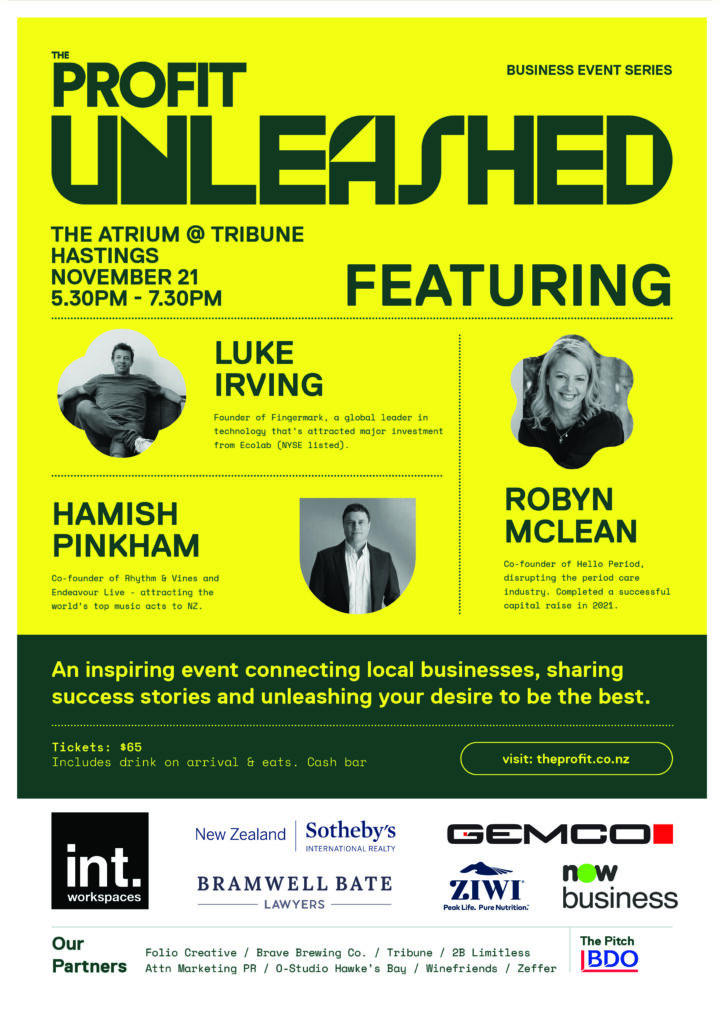Luke Irving has big aspirations to leave an indelible mark on the global technology scene from Havelock North, as well as creating a Silicon Valley styled technology scene nurturing Hawke’s Bay talent.
Luke, the founder of a global tech company Fingermark which is leading the development of applied computer vision and deep learning computer machine technology, uplifted his team of 18 staff from Auckland and moved them into a warehouse in Havelock North three years ago.
The easiest way to explain what Fingermark does is that it designs, builds and manufactures leading edge technology solutions to help businesses streamline operations and enhance customer experience.
Fingermark leads the way in artificial intelligence (AI) software with real time and predictive business analytics, through to next generation customer kiosks and digital menu boards, which is fit for purpose and with a clear vision to “revolutionise customer speed of service” in sectors such as Quick Service Restaurants (QSR) and the health sector.
Luke established Fingermark in 2005, seeing a gap in the touch screen market and how it could be adopted in the hospitality and food service industry. He had had dabbled in the technology as a bar owner in Wellington, when he installed a touch screen point of sale system which he simply turned the screen around to the customer to place their food order.
“Self-service was starting to come of age and technology was at price point that it could be adopted into most markets quite easily but there was no one building technology in that space in NZ.
“I took a bit of a punt and set Fingermark up as a digital kiosk company, where we started to build hardware and software.
Early adopters included the Briscoes Group including Rebel Sport as well as Westfield Group and Sky City.”
Luke’s big break came when he developed the first self-ordering and payment kiosk for Subway, heralding a serious foray into the QSR sector.
This opened up the global opportunity to secure a contract with Yum Brands, the parent company of Restaurant Brands, which operates Taco Bell, Pizza Hut and KFC globally.

Luke says fast food businesses were making good money during the Global Financial Crisis and they decided to invest in digital technology such as outdoor and indoor ordering kiosks and digital signage.
“There’s a well-known story of me taking 63 flights across the Tasman to win the Yum brands contract.
“They saw us as one-stop technology shop and that started our growth and global opportunities, so at the point in time I reinvested heavily back into the business in software development and we set up a software development business in Brazil.”
Four years ago, Fingermark hit a “sweet spot” and started to win additional contracts in the QSR sector for developing AI and Machine learning for suggestive selling and predictive modelling of a customer’s ordering patterns. The next generation technology is capable of identifying the customer and its buying habits so that it can offer more than ‘would you like fries with that?’.
Fingermark has gone on to smash its “big hairy audacious” client base target set for end of 2020 goal of 100,000 QSR including securing a global contact with McDonalds.
Fingermark now employs over 60 staff, many spread across two offices spaces in Havelock North, as well as team members based in Brazil, Dubai and Colarado, United States.
Luke’s ambitions are not to just develop a large technology business in Hawke’s Bay but to develop local talent that goes on to work in other local technology businesses such as Re-leased, Ask Your Team or Fingermark’s sister business Florence, which is based in Napier.
To do so, he is championing a talent laboratory campus and is scouting for a greenfields site. He has also had early discussions with EIT Hawke’s Bay to be the education partner with the aim of delivering highly skilled technology graduates with a higher earning capacity to Hawke’s Bay businesses.
“We’ve got five EIT technology graduates at Fingermark and we can see the potential to create a lab style education hub that will ensure the long term sustainability of businesses like ours in Hawke’s Bay. We don’t want to move, but we need the talent and there’s two options — you grow it locally or you import it.



